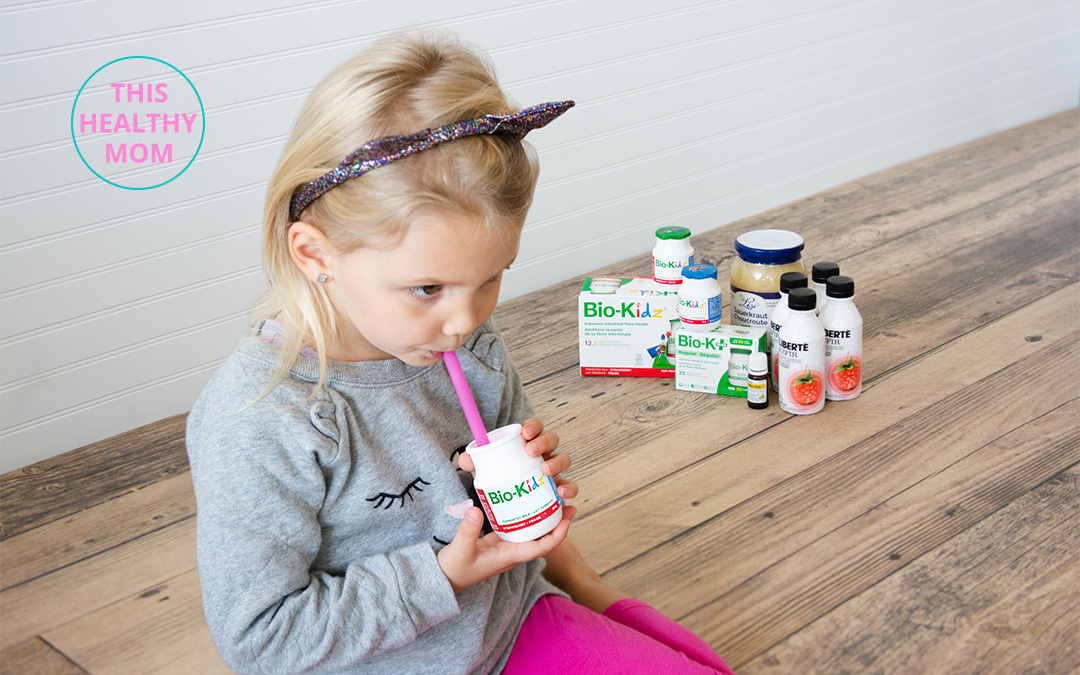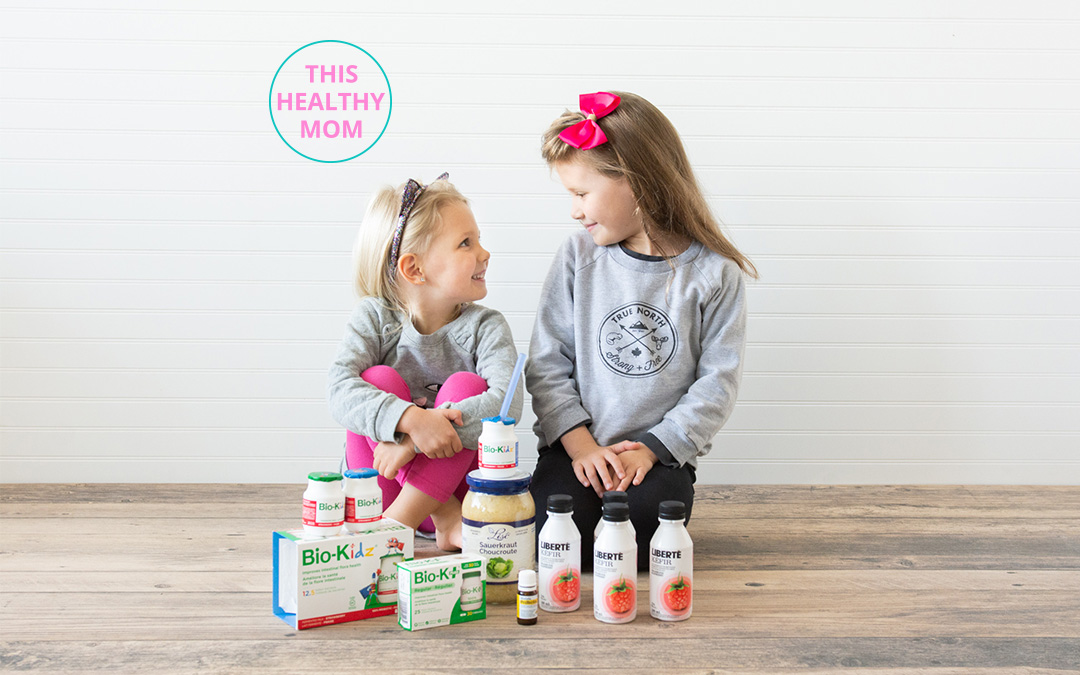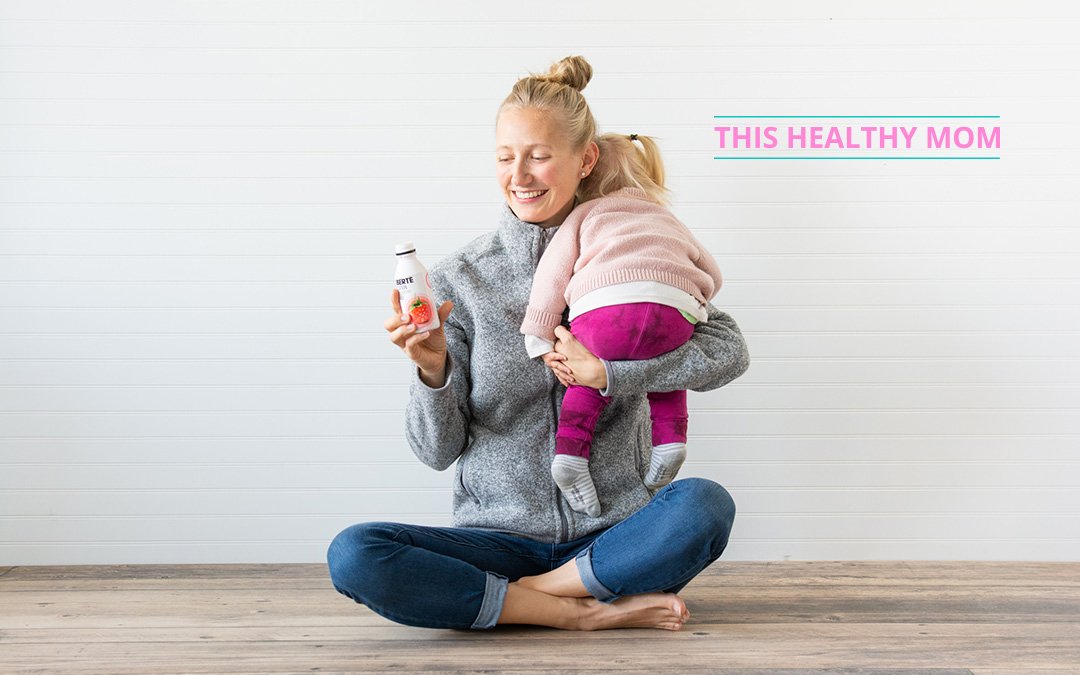You’ve just had a baby and you are overwhelmed and exhausted. You may have been lucky enough to get some sleep in those first few days or weeks but then your precious little one starts to spit up constantly or seems to be having tummy troubles. If your little one becomes fussy ALL the time and it’s worse after you feed them likely they have colic or digestive distress. My oldest daughter she was miserable for the first few months and only happy lying on my chest on an incline.
What’s Colic?
Colic is defined as severe, fluctuating pain in the abdomen caused by intestinal gas or obstruction in well fed babies. It can be heartbreaking to see your little one suffering from digestive distress. Probiotics can be a life changer for this condition. We used infant probiotics with our infant girls as a preventative and when the baby appeared to have any tummy discomfort.
Breastfed vs Formula Fed Tummy Troubles
Breastfed and formula fed babies alike can have tummy troubles and for different reasons. Breastfed babies may have a poor latch, resulting in getting too much air with each suck. You will know this is happening when you hear a clicking sound when they suck. Formula fed babies may have an issue with the type of formula they are being fed. If so, try another type for example instead of a cow’s milk base try a different form. And choose a formula that has added DHA and a probiotic.
What are Probiotics?
Probiotics – pro meaning ‘for’ and biotic meaning ‘life’ which together are for life. Probiotics are the good bacteria found in the gut also called healthy flora. Everyone needs probiotics but for babies probiotics can make the difference between tummy troubles, sleepless nights, hours of crying and a happy, content baby with a healthy digestive tract.
There is plenty of research on the benefits of probiotics including but not limited too:
- Reduces symptoms of colic
- Relieves constipation
- Stops acid reflux
- Improves antibiotic associated diarrhea
- Manages eczema in babies and children
- Improves gut immunity and oral health
- Are essential for cesarean section delivered babies
- Reduces allergies
- May reduce the occurrence of colds and flu
- Helps keep bowels in shape (for better poop!)
When and How to Get Probiotics
Probiotics are often prescribed by your doctor after antibiotics have been taken because the antibiotics not only kill the bad bacteria but also the good bacteria. Probiotics help rebuild the good guys in the digestive tract. But probiotics are great everyday as well. Everyone can benefit from taking a daily supplement or by eating more of the foods that naturally contain probiotics.

Where Do Probiotics Come From?
Probiotics are found in our food and in the dirt. Since probiotics are good bacteria they can be found all around us. One place where we find an abundance of good bacteria is in breast milk. Breast milk provides baby its first line of defense against bacteria and viruses by building a strong, healthy immune system. Antibodies are also passed from mom to baby through the milk and this helps our babies stay healthy and safe until their own immune system is up and running.
What Makes a Great Probiotic?
Probiotics come in strains. When looking for a probiotic or food boosted with a probiotic choose one that is a human strain. Human strains are found in the intestines, fecal matter, breast milk and more. It is important to use a strain that has made it through the digestive tract (mouth to anus) in a human, this way we know it can survive and be beneficial.
Don’t be fooled by the marketing. Many companies rave about the number of live probiotic cells their product contains. 1 million vs 50 billion really doesn’t matter. In Canada the number of live probiotic CFUs (colony forming units) listed on the product are supposed to be what you will find at the date of expiry in the product. Because of this companies add more than needed (called an overage) to ensure there will be enough at any point within the expiry date to benefit the digestive tract. Research shows that depending on the strain of probiotic and the reason for taking it the optimal cfu varies dramatically. I like shelf stable probiotics as they are more stable in a variety of environmental conditions. Clinical research is also important.
My family uses a few different methods to get adequate probiotics. We take a daily supplement, eat foods containing probiotics and we eat foods containing prebiotics as they feed the probiotics that are already in our body naturally.

Our Favourite Probiotics
- Bio-K which contains three human strains of probiotics that work together. Bio-K comes in a ready- to- drink and also in enteric coated capsules. They have dairy, and vegan options. By taking just 2 capsules of Bio-K + research found a 95% reduction in cases of clostridium difficile-associated diarrhea.
- BioGaia (for infants and up) comes in a liquid dispensed in an eyedropper much like vitamin D3. This delivery method is extremely easy to give to babies. BioGaia has enough research to keep you busy reading for days. The most impressive is its claims to help treat infant colic.
- Bifidobacterium longum BB536 is a strain that is shelf stable and is a powerhouse in the intestines. Take this shelf stable product traveling to eliminate travelers diarrhea. This strain has been researched for helping with UTIs and intestinal issues like constipation, and IBS.
Fermented foods contain prebiotics and probiotics introduce these to your kids:
- Organic plain yogurt
- Kombucha (a fizzy drink)
- Kefir
- Sourdough bread
- Cottage cheese (homemade is better)
I recommend you read the ingredient list, medicinal and non medicinal. You want to see human probiotic strains, you want them to be live so they will work and you do not want any sugar added. Sugar feeds the bad bacteria, and helps it thrive, we do not want that in a supplement. If probiotics are out of reach financially then only use them when you first feel like you and your kids are getting sick, or when you are taking antibiotics. Changing up your grocery list to include fermented foods will go a long way in getting your ‘good bacteria’ back in harmony.
Mom Tip: You may need to sneak or hide probiotics in your kids shakes or other foods. But do not heat probiotics as it kills the live microorganisms.
Do you give your kids probiotics? Which are your favourite brands?

